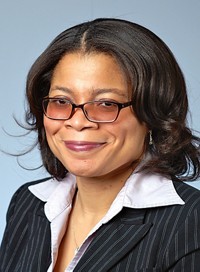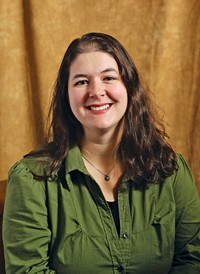Advertisement
Grab your lab coat. Let's get started
Welcome!
Welcome!
Create an account below to get 6 C&EN articles per month, receive newsletters and more - all free.
It seems this is your first time logging in online. Please enter the following information to continue.
As an ACS member you automatically get access to this site. All we need is few more details to create your reading experience.
Not you? Sign in with a different account.
Not you? Sign in with a different account.
ERROR 1
ERROR 1
ERROR 2
ERROR 2
ERROR 2
ERROR 2
ERROR 2
Password and Confirm password must match.
If you have an ACS member number, please enter it here so we can link this account to your membership. (optional)
ERROR 2
ACS values your privacy. By submitting your information, you are gaining access to C&EN and subscribing to our weekly newsletter. We use the information you provide to make your reading experience better, and we will never sell your data to third party members.
Comment
Comment: Fostering a diverse and inclusive American Chemical Society
by Reni Joseph, chair, ACS Committee on Minority Affairs
November 20, 2022
| A version of this story appeared in
Volume 100, Issue 41

Elevating the voices of and including people of color is essential for advancing science, technology, engineering, and mathematics (STEM), particularly for people of races and ethnicities that are underrepresented in US academic institutions. The National Science Foundation defines these races as Black, Hispanic, Latino, and Indigenous peoples, and there are valid arguments to also include Southeast Asian people as underrepresented. US higher education has a lack of racial and ethnic diversity, with less than 15% in faculty roles as of 2020. Chemistry departments in the US have even less representation, with only 5.4% of Black, Hispanic, Latino, and Indigenous faculty members as of 2018.
The Committee on Minority Affairs (CMA) was established in 1993 by the American Chemical Society to address the racial and ethnic underrepresentation in ACS membership. The most recently updated vision of CMA is to “diversify chemistry through the transforming power of inclusion and equity.” CMA’s mission is to “advance a broader, inclusive, and equitable chemistry enterprise by empowering underrepresented groups, stakeholders, and marginalized peoples for the benefit of the world.” Those stakeholders include ACS governance, ACS members, and ACS student members.
Given the chemistry enterprise’s global nature, ACS has an opportunity to improve inclusion and diversity across the chemical sciences. CMA approaches this opportunity and its mission with three strategic goals: strengthen ACS programming to reflect a broader, inclusive, and equitable chemistry enterprise; increase the recognition of underrepresented chemical scientists; and share expertise in effective diversity, equity, and inclusion content and act as a resource to stakeholders.
CMA uses national and regional meetings as a platform to highlight the historical accomplishments of underrepresented scientists. At this year’s national meetings, we honored the legacies of Marie Maynard Daly and Bettye Washington Greene, two Black trailblazers in chemistry.
Daly was the first Black woman in the US to earn a PhD in chemistry, from Columbia University. CMA hosted a full-day collaborative symposium with the ACS Division of Biological Chemistry and the Division of Analytical Chemistry to celebrate Daly’s life and science. This symposium also served as a kickoff to the 2023 dedication of a new National Historic Chemical Landmark in Daly’s honor at Columbia. To further celebrate Daly, the journals Biochemistry and Analytical Chemistry teamed up for a virtual issue in her honor (2022, DOI: 10.1021/acs.analchem.2c03492).
CMA, Dow, and the ACS Division of Colloid and Surface Chemistry are partnering with Langmuir to publish a special virtual edition in honor of Greene, the first Black woman PhD chemist employed in a professional position at Dow. This edition will highlight her contributions and the work of additional underrepresented chemists who are furthering her legacy. CMA supported a special issue of the Journal of Chemical Education, “Diversity, Equity, Inclusion, and Respect in Chemistry Education Research and Practice” (2022, DOI: 10.1021/acs.jchemed.1c01219). These special issues serve as promising avenues for journals to add to the diversity of authors, reviewers, and guest editors.
Recognition can serve as a powerful tool for change. Elevating the scientific contributions of scientists from underrepresented groups helps establish new role models for the youngest generation of future scientists and can potentially increase the racial diversity of future ACS award winners. CMA sponsors several awards, including the Stanley C. Israel Regional Award for Advancing Diversity in the Chemical Sciences and the ChemLuminary Award for Best Overall Local Section Minority Affairs. CMA also invites Black, Hispanic, Latino, and Indigenous chemists as keynote speakers at CMA luncheons and various symposia.
CMA, ACS, and other scientific societies have a responsibility to attract the next generation of chemists from marginalized communities, including people of color, people from economically disadvantaged backgrounds, and first-generation students. These organizations will need to work with high school teachers and introduce nontraditional methods to effectively attract young people. Many CMA members volunteer with ACS Project SEED, a program that provides research support for high school students from economically disadvantaged backgrounds. CMA also oversees the ACS Scholars Program, a renewable scholarship for undergraduate chemistry students of color. In addition, CMA also selected 20 undergraduate and graduate students to receive travel awards funded by Pfizer to attend and present at ACS Spring and ACS Fall 2022.
To educators and scientists, I urge you to be change agents and to make a difference in the lives of the generation of tomorrow. Please get involved in the various CMA activities. CMA can provide the resources needed to help you get started. Email us at chemdiversity@gmail.com. Check out chemdiversity.org to get additional information on who we are and how to get involved.
Views expressed are those of the author and not necessarily those of C&EN or ACS.





Join the conversation
Contact the reporter
Submit a Letter to the Editor for publication
Engage with us on Twitter